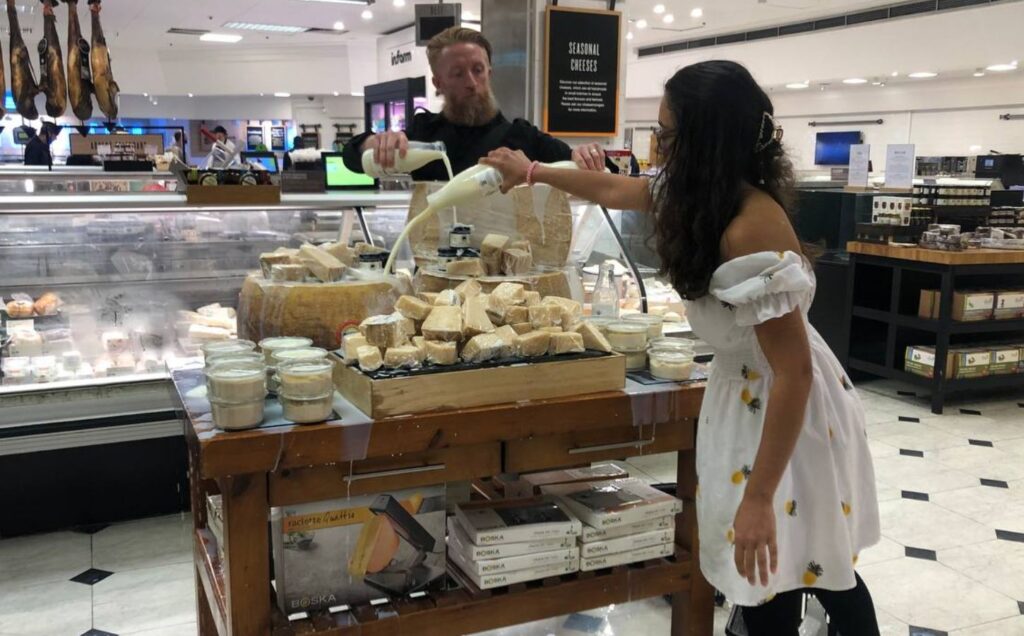Two Animal Rebellion activists have been charged after causing damage to high-end supermarkets in London.
Sofia Fernandes Pontes and Steve Bone emptied milk onto the floor in both Selfridges and Fortnum and Mason last Friday (October 7). The pair were subsequently arrested and charged with criminal damage, both over and under £5000, and theft.
Animal Rebellion has claimed that the activists were told in a police interview that they caused £100,000 worth of damage to carpets at Fortnum and Mason. This is due to the fact the whole floor needs replacing, rather than just that one section.
The direct action was in line with Animal Rebellion’s Plant-Based Future campaign, which has seen activists disrupt the supply of dairy in the UK to protest against animal agriculture.
The group is urging the government to move towards a vegan food system and rewild agricultural land.
Fernandes Pontes, a mother and student from Madeira, said: “My actions on Friday reflect the severity of the climate, ecological, and animal emergencies, but they also represent the massive hope I have that we can turn the corner and step into a better world.”
“I took action because I believe change is possible, but only if Liz Truss and Ranil Jayawardena step up and make the bold decision to support a plant-based future.”
She added that she is “completely willing to face the consequences” of her actions, saying she “trusts in the people of this country to recognize the changes that need to happen to bring us into an abundant, loving, and sustainable plant-based future.”
Animal Rebellion’s demands
Animal Rebellion has stated that it will continue to take nonviolent direct action until the British government enters negotiations for its two demands. These are as follows:
1. Government supports farmers and fishing communities to move away from animal farming and fishing as part of an urgent and immediate transition to a plant-based food system.
2. Government commits to rewild the freed-up land and ocean as part of a broader program of wildlife restoration and carbon drawdown
In line with these demands, it has been protesting the dairy industry across the country since the start of September.
Activists have been using non-violent sit-ins and blockade-style tactics to attempt to clear the supermarket shelves of milk.
Speaking to Plant Based News (PBN) ahead of the campaign, a spokesperson said: “The point of this disruption is that it’s going to be ongoing.”
“We are going to be doing this until the government meets our demands. Disruption is not a brief event, this is the beginning of an escalation that we will continue until a major change is achieved.”
Animal agriculture’s environmental costs
Animal agriculture is responsible for at least 14.5 percent of global greenhouse gas emissions, though some estimates put that figure much higher. Dairy production alone is thought to contribute to around four percent.
It is also a leading cause of deforestation, having contributed to around 91 percent of Amazon destruction.
Animal agriculture has been identified as a primary driver of biodiversity loss, and a report from the UN in 2021 found that we need to move to a “plant-heavy” food system to address this.
A study from the University of Oxford in 2018 found that Western countries need to dramatically reduce their meat consumption to avoid climate breakdown. In particular, researchers claimed that a 90 percent beef reduction is imperative.






